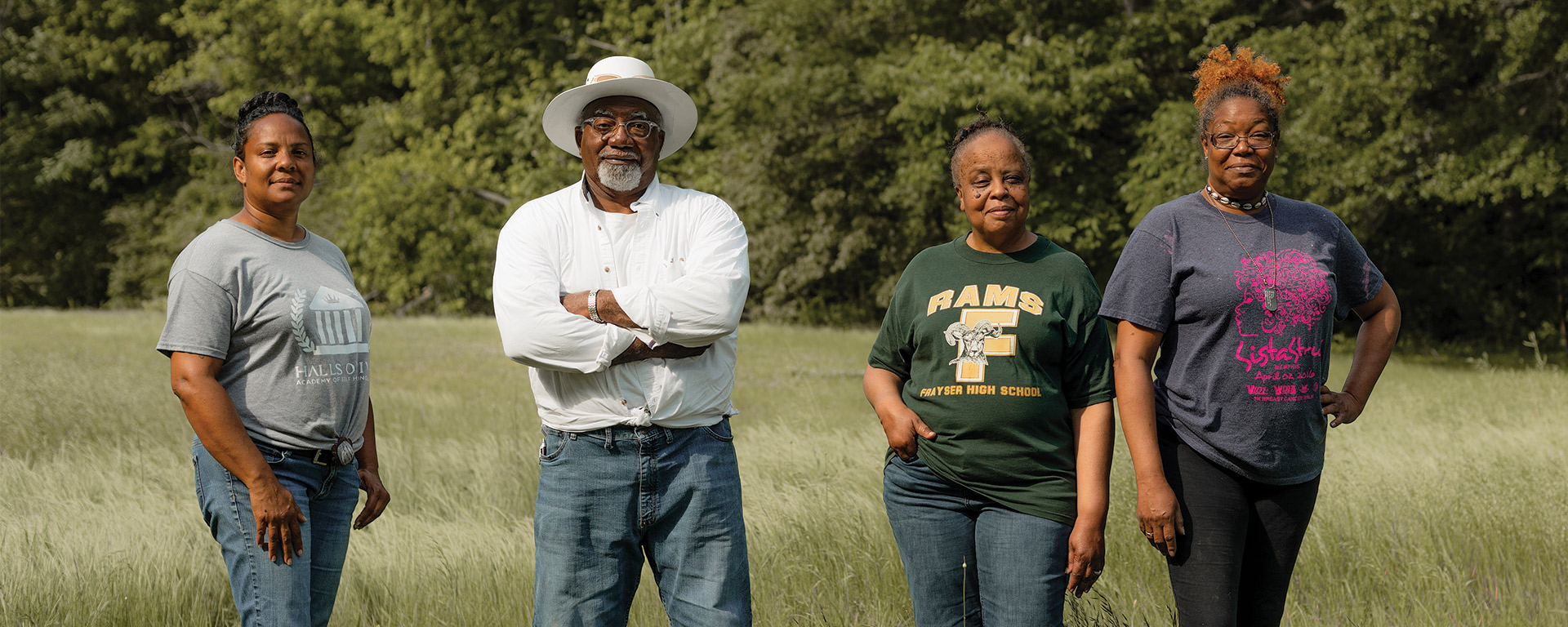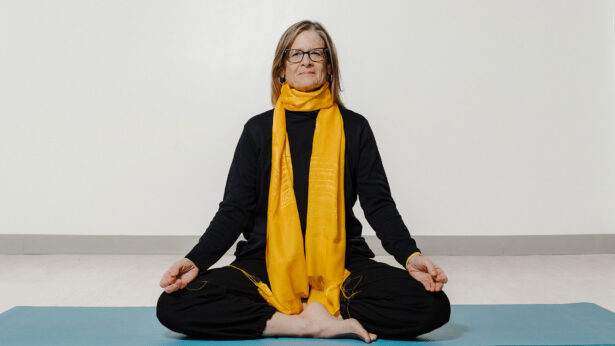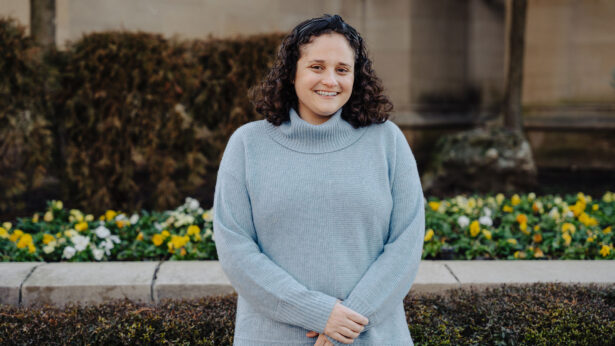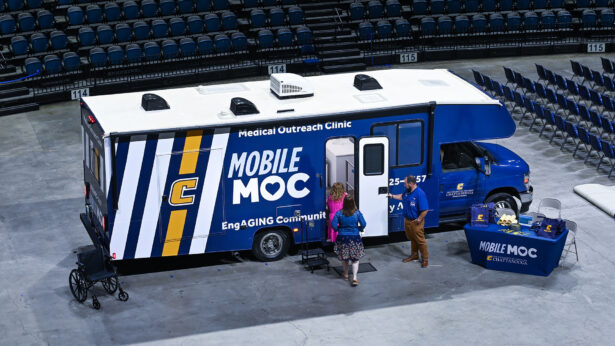On a breezy Thursday afternoon in mid-May, Ernest J. Trice surveyed an empty patch of land in the Frayser neighborhood of Memphis. Tall grass was blowing in the wind, a train rumbled by in the distance, cars passed at one end of the field, and people moved in and out of the houses that hemmed the property’s perimeter.
An urban gardener, Trice envisioned what the space would be like in a few months, filled with planted rows producing late-summer crops of tomatoes, cucumbers, eggplants, watermelons, squash, sweet potatoes, pumpkins and more. This bountiful harvest will provide fresh food for the neighborhood, which sits squarely in one of several ZIP codes in Memphis designated as food deserts.
Dubbed the Frayser Community Garden, the space is on an unused 2.3-acre plot that was formerly an archery range at The Links at Davy Crockett, a golf course in the North Memphis neighborhood.
The garden is the result of a collaboration led by the UT Health Science Center College of Medicine and its Board of Visitors advisory council, with the help of the residents of Frayser; the Memphis Division of Parks and Neighborhoods, which offered the land; and the UT Institute of Agriculture, which is contributing agricultural consulting through its local extension agency. The groups have worked together to establish the garden to improve access to locally grown, nutritional foods for Frayser, which has 50,000 residents and only three grocery stores.
Planting the Seeds
The initial groundbreaking for the garden was in January 2021. Despite the cold, Scott Strome, executive dean of the College of Medicine; Altha Stewart, senior associate dean of Community Health Engagement in the college; advisory board members; and community residents gathered to plant a peach tree on the site, a symbolic stake in the ground for the future.
“Having folks know where their food is coming from and participating in growing it makes you proud,” Strome says.
“Community health and engagement is who we are. If we simply look inside the college, we have failed.”
Memphian and College of Medicine Advisory Board Member Nathan Lubin has been a leader in forging the garden collaboration, after a friendly nudge from the dean.
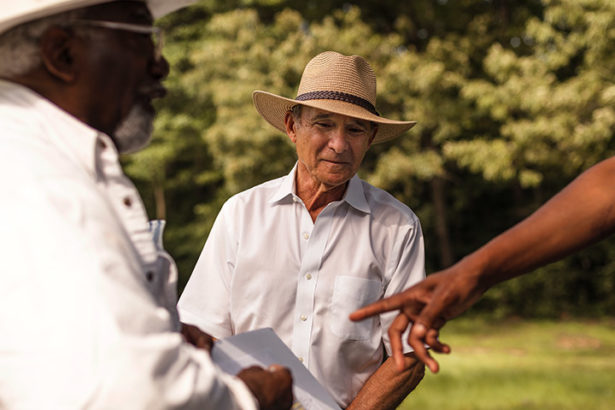
“Dr. Strome said, ‘Nathan, I have a project for you,” Lubin recalls. A 1971 graduate of UT Martin with a degree in agriculture and owner of Lubin Enterprises, a construction company in Memphis, Lubin has lent his considerable knowledge of farming and agriculture, along with his tractor and equipment, to the cause.
“The goal is to involve those in the neighborhood, specifically those who would benefit from knowing more about healthy foods and getting to be in the garden,” Lubin says.
First Fruits
The Frayser Community Garden kicked off in earnest in September 2021 with a fall planting of greens, including purple-top turnips, kale, mustard greens and more. Trice, half a dozen community members, Strome, Stewart, advisory board members and extension agents plowed the field and sowed the seeds.
“This is a passion,” Trice says. “I got started because of food deserts.”
Though he does not live in Frayser, Trice says he joined the planting because he wanted to make sure the garden got off to a good start.
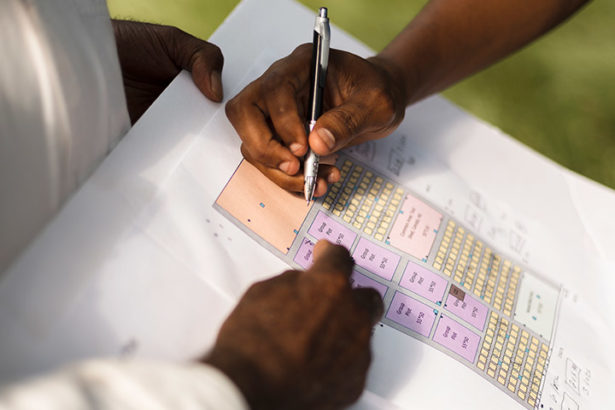
Lubin brought his tractor and provided the seeds and tools. Strome took a turn at the tractor’s wheel.
“I think this is what’s supposed to happen,” Lubin says. “We (the UTHSC College of Medicine) need to be in neighborhoods, where people don’t have access to the foods that they really want. We need to give them activities that will encourage people to get up and get out and move. And then, to be able to enjoy the fruits of their labor is really special. Urban gardening is a good tool for overall health, both in physical activity and in nutrition.”
Stewart, who organized the fall planting, agrees.
“This is the first step in really solidifying this collaboration between the university and the community around healthy lifestyles,” she says. “The community garden is the first step in our introducing ourselves to the Frayser community as a partner that really cares and thinks about their health.”
During late fall, a greens-tasting party was held at a community center in Frayser. There was music, fellowship and greens from the garden, cooked by those who grew them.
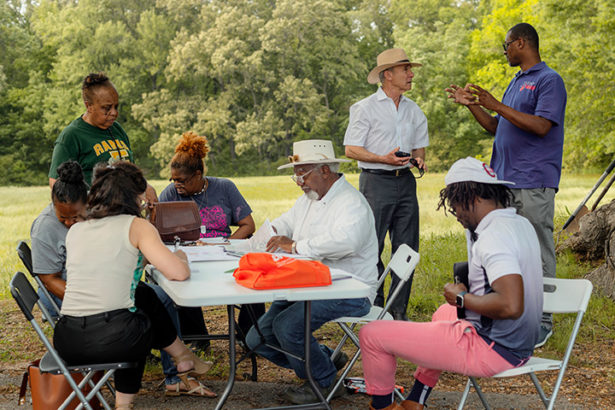
Reginia Dowell, who has lived in Frayser more than 40 years and is a member of the community’s Garden Council and the Garden Communications Committee, was pleased with the fall planting and hopeful for the prospect of things to come.
“Planting here in the Frayser community means a lot because it is a place to bring the community together where we can give fresh vegetables free to everybody, and it also allows us to have a partnership with the University of Tennessee Health Science Center,” she says.
A Rough Start in 2022
Mother Nature just didn’t cooperate with plans for the garden this spring.
“It has just kept on raining,” Dowell says. “The bad weather has made things run later than we planned.”
The rain delayed spring soil prep, but it didn’t dampen Dowell’s enthusiasm for the garden and what it can mean to her community.
“We are very optimistic about the garden planting for June that we’ll have,” she says.
Forging Ahead
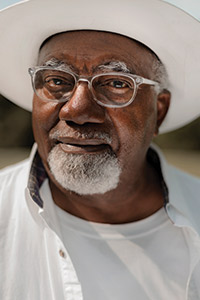
And so folks gathered on that Thursday in May to begin measuring and talking about dividing up individual plots in dimensions of 10-by-10, 20-by-40 and 20-by-50. According to Trice, even the smallest of these plots can produce enough for three to five families.
These growers are armed with hard-earned knowledge from last season that stands to make the garden better in future seasons.
“That fall planting gave us a real understanding of the challenges we face,” Trice says.
The garden needs a fence to keep out stray deer, cats, dogs and the wild hogs he is told walk along the railroad tracks nearby.
A shipment of lime will be applied to help knock acidity out of the soil.
Perhaps the most-difficult task will be sustaining the garden over time.
Lubin, for one, is not worried.
“We have everything we need to get started, and it will grow when they see their neighbors working on it,” he says.
